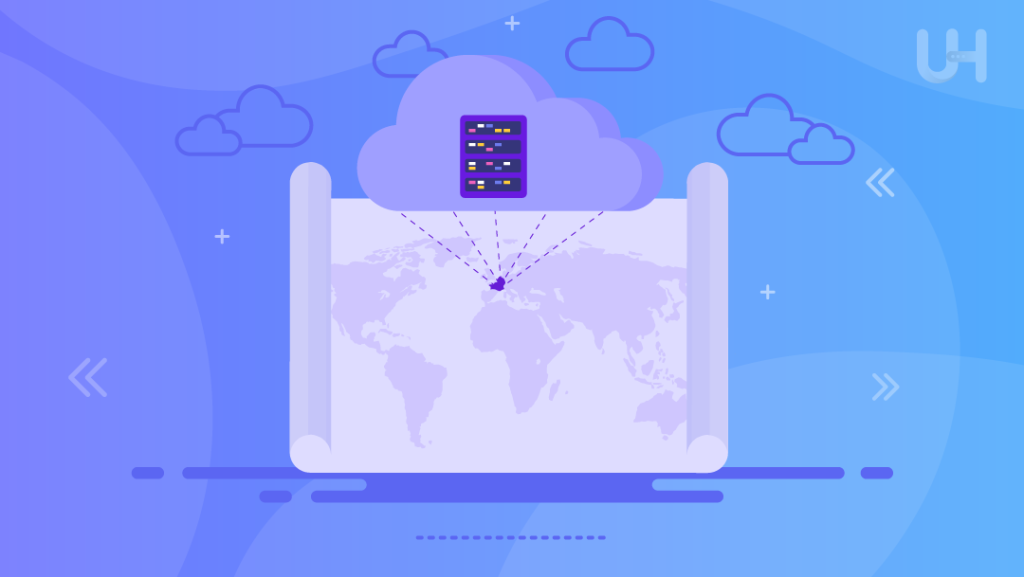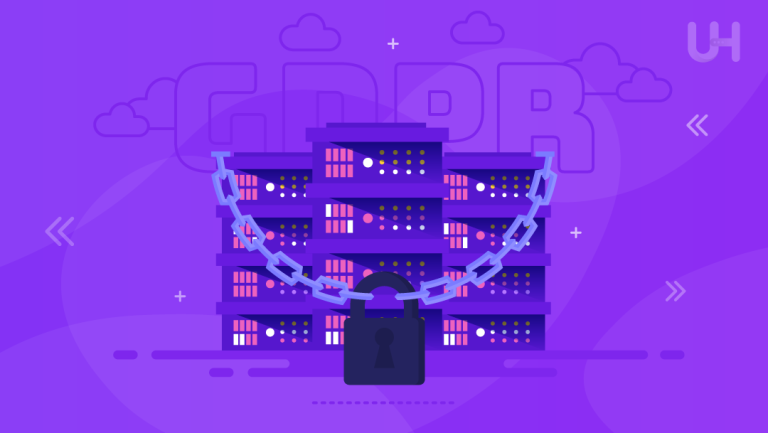Data nowadays has emerged as one of the important assets for both individuals and organizations. However, with the exponential rise in cross-border flow and cloud storage, a number of questions regarding data ownership, privacy, and the regulatory requirements associated therewith have arisen. The concept of “data sovereignty” is gaining steam as governments and organizations try to ensure data security follows individual rights and national interests.
In this article, we will explain data sovereignty, how it works, and why it’s so important. We will also quote generally recognized best practices and discuss some of the pitfalls an organization faces while trying to remain compliant. Understanding these elements is central for any business in navigating an increasingly transforming global environment in terms of regulations on data protection.
What is Data Sovereignty?
Data sovereignty is the principle of data being subjected to the laws and governance structures of the country in which data are collected, stored, and processed. Complementing data protection, generally designed to protect personal information, data sovereignty stresses the jurisdictional rights of a nation over data within the borders. This could mean enforcement of where data can be stored, who can access it, and how it shall be protected with regard to local laws.
Data sovereignty has become a key term in cloud computing and digital services spanning global markets. Multinational organizations must be aware that adherence to data sovereignty legislation signals a host of regulations that must be worked out to eventually prove that data can be accommodated within legislation from the respective countries where the data is stored or accessed.
How Does Data Sovereignty Work?
For organizations that collect and store data, ensuring compliance involves a raft of measures regarding the location of the data, stringency of security standards, and adherence to specific regulations based on jurisdictions. This is particularly complex for multinational companies operating across many countries, each with its diverse regulatory demands.
A typical process for achieving data sovereignty compliance might look something like:
- It first evaluates an organization’s data management landscape by considering the security level it takes in its data management and determining the physical location of its data storage centers, including options like cheap storage VPS for cost-effective, scalable storage solutions.
- It then maps the locations of its customers and users based on applicable data sovereignty laws.
- The organization’s IT and legal departments review these regulations to determine the level of compliance and advise on the necessary steps toward meeting local requirements where gaps may exist.
- Carry out regular monitoring for changes in customer bases, updates in the law, and actualization of compliance with them.
Why Is Data Sovereignty Important?
Data sovereignty became a big issue for several reasons in today’s digital economy:
- Protection of Individual Rights: The protection of the rights of individuals is done by having more say over personal information. It also sightings the passage of regulations through which it can prohibit unauthorized collection, usage, or sharing of data to protect individuals’ data privacy.
- National Security Considerations: While data sovereignty regulations keep and manage sensitive information within the country’s borders, this inherently makes them all the more contributory to national security concerns. This will prevent unauthorized access by foreign entities and potential security breaches that may arise from cross-border data transfers.
- Economic Implications: Data sovereignty concerning global organizations calls for a point of note where compliance is inevitable. Organizations are supposed to avoid these hefty fines and maintain their brand reputation by adhering to the set rules. Adherence to such regulations will partly affect decisions regarding data cloud storage, processing, and market expansion, hence making data sovereignty an important aspect of a company’s economic strategy.
- Data Localization and Control: Data sovereignty thus provides a government with the power to store and process specific types of data only within its borders. By using dedicated storage servers within the country, organizations can reduce reliance on foreign data storage providers and mitigate the risks of cross-border data flow.
Secure Your Data with Premium Web Hosting!
Looking for a reliable web hosting provider to support your data sovereignty needs? UltaHost offers secure, compliant, customizable web hosting solutions prioritizing data protection and residency options.
Data Sovereignty vs Data Localization vs Data Residency
Data sovereignty is often confused with terms like data localization and data residency. While they are somewhat the same, each concept has distinct implications. Below is a comparison that highlights the differences:
| Aspect | Data Sovereignty | Data Localization | Data Residency |
| Definition | Legal control over data based on the laws of the country where data resides | Mandates that certain data types must be stored within a specific country | Specifies the geographical region where data is stored but not always with legal requirements |
| Primary Focus | Compliance with jurisdictional regulations | Storage and processing of data within a country’s borders | Storage in a designated region without necessarily enforcing local laws |
| Scope | Broad, covers access, handling, and security measures | Focused on storage location | Limited to physical data location without extended legal requirements |
| Examples | GDPR in the EU, CCPA in California | Russia’s data localization laws for personal data | Cloud providers offering EU-based storage as a customer option |
| Key Drivers | National security, privacy, economic impact | Sovereign control over citizens’ data | Customer choice for data storage in a preferred location |
Challenges of Data Sovereignty

Most organizations face a number of issues trying to satisfy these data-sovereign regulations, each requiring special attention and strategy to avoid unreasonable disruptions to business operations.
Cross-border Data Flows
Given the global nature of digital transactions, data often crosses borders. The management of data flows to capture such broad coverage in compliance with varying jurisdictional laws may be quite complex, especially when regulations in different countries conflict or impose stringent transfer restrictions.
Data Localization Requirements
Data localization may mandate that specific types of data remain strictly within a country’s borders. This may be logistically challenging for big multinational organizations that operate global data centers and cloud services and also require in-country physical facilities for storing data.
Compliance with Local Regulations
The organizations have to keep themselves updated with many local regulations, and various compliance measures may be necessary in different countries. Since requirements keep evolving, IT, legal, and compliance teams must continuously assess them.
Cybersecurity Risks
With great concern for security, data sovereignty comes hand in glove, even as data stored within a country’s border may still be vulnerable to various domestic threats. Protecting data against breaches while considering its compliance with local standards is vital for fostering trust and protecting information.
International Data Sharing Agreements
With no integrated global legal framework for data protection, one essential mechanism in this respect would be data-sharing agreements between countries. Of course, matching such agreements with national laws on data sovereignty would involve complex legal issues.
Software-as-a-Service (SaaS) and Cloud Infrastructure
Meeting data sovereignty requirements will become extremely challenging going forward as more organizations operate intrinsically on SaaS (Software-as-a-Service) and cloud solutions. Most cloud providers have become multi-regional, with their own set of reasons for data residency, compliance, and more.
Data Sovereignty Best Practices
The following best practices will place an organization in an enviable position to address data sovereignty challenges. In fact, these proactive steps will enable them to develop a very strong framework for compliance, data privacy and data security.
Conduct a Data Audit
More importantly, it is the ability to perform a proper data audit of pinpointing all points within their structure where they store the data, who has access to that data, and the regulations concerning that sort of data. Therefore, this foundational step is necessary to pin any compliance gaps.
Use Data Localization
Where this is possible, storing data in the jurisdiction where it originated makes it easier to observe local laws. Data localization could also facilitate faster data access and allow for more control over security measures.
Adopt Data Protection Measures
In addition, data encryption with the rigging of access privileges would enhance better compliance due to legislated data protection and building trust among users and customers.
Implement a Data Protection Policy
Development and enforcement of a data protection policy allow the organization to standardize the processes involved with data management. A good policy also guides employees on how to work harmoniously within the organization on issues related to data handling.
Use Cloud Providers With Data Residency Options
One way to simplify compliance is to select cloud providers that offer data residency options. This option allows the organization to choose where its data resides according to changing regulatory requirements.
Stay Up to Date with Regulatory Changes
With evolving data protection laws, it is imperative to refresh the practices that keep the organization compliant with updated laws. Lastly, staying on top of new regulations informs an organization on managing risks and ensuring ongoing adherence to sovereignty requirements.
Conclusion
Data sovereignty is one of the main pain points in today’s global data environment, as it really influences how organizations store, manage, and protect the data. From understanding the importance of data sovereignty to the best practices for implementation, businesses can take the steps necessary to navigate complex regulations, protect individual privacy, mitigate risks, and much more. As the laws of data sovereignty keep on developing, proactive compliance strategies will enable organizations to stay ahead of the competition and instill confidence in a data-sensitive world.
For full control over data location and security, a fully dedicated server from UltaHost ensures compliance with data sovereignty laws. Trust UltaHost to protect your data with a secure, dedicated solution.
FAQ
What is data sovereignty?
Data sovereignty is the concept that data is subject to the country’s laws, where it is collected, stored, and processed.
Why is data sovereignty important?
It protects individual privacy, supports national security, and helps businesses comply with local regulations.
How does data sovereignty affect multinational companies?
Multinational companies must navigate various countries’ data laws, which may require local data storage and specific compliance measures.
What is the difference between data sovereignty and localization?
Data sovereignty concerns legal jurisdiction over data, while data localization mandates specific data to be stored within a country’s borders.
What challenges do businesses face with data sovereignty?
Businesses face cross-border data flow restrictions, localization demands, and cybersecurity risks, among other regulatory challenges.
How can organizations ensure data sovereignty compliance?
They can conduct data audits, adopt data localization, implement data protection policies, and use cloud providers with data residency options.
How do data sovereignty regulations impact cloud storage?
Organizations must choose cloud storage options that offer data residency to comply with local laws and maintain sovereignty.











